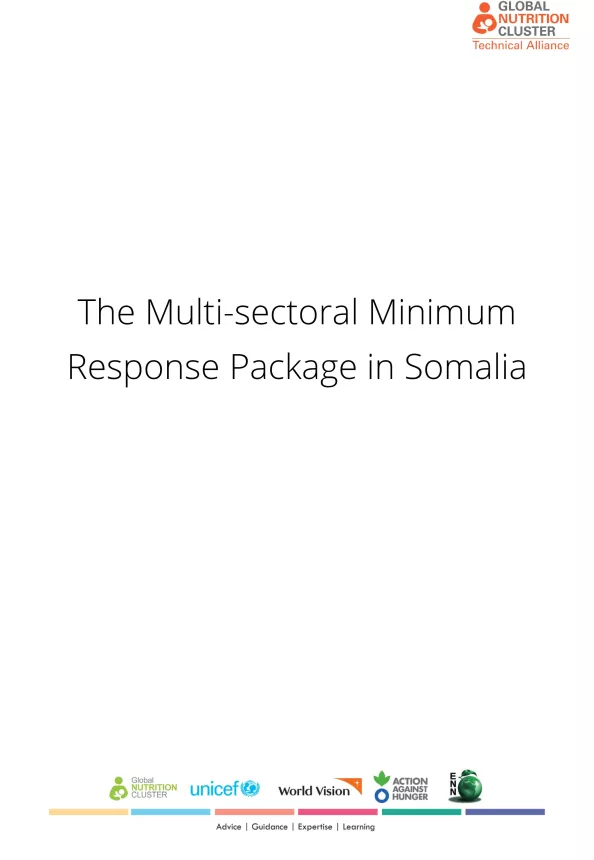The Multi-sectoral Minimum Response Package in Somalia
Publication details
Background
At the start of 2022, Somalia experienced a considerable influx of people into cities and informal settlements from neighboring rural areas. This was the result of a prolonged drought that spanned multiple seasons, beginning in 2020, as well as sharp increases in food prices. As a result, families lost their crops, cattle, and livelihoods, and were unable to pay for basic food items. Consequently, many started moving to cities seeking humanitarian assistance and other means of subsistence, with mass migration ensuing.
Somalia’s Food Security Integrated Phase Classification and Famine Risk Analysis, published in April 2022, projected that six million people were likely to experience a crisis situation that year and recommended scaling up interventions such as food and water distribution to avert the risk of famine. In Somalia, the displaced population is dispersed and/or constantly moving over large distances, with formal and informal camps being formed. This makes identifying and targeting those needing support challenging. At the end of April 2022, the Somalia Nutrition Cluster published an urgent call for the scaleup of coordinated multi-sectoral actions.
In response to the worsening situation in Somalia and the challenges in targeting displaced populations, the International Organization for Migration (IOM), the United National Children’s Fund (UNICEF), and the World Food Programme (WFP) came together to jointly target their services to displaced populations in Baidoa, Benadir, and Beledweyne. IOM, UNICEF and WFP’s implementing partners, Camp Coordination and Camp Management (CCCM), Health, Nutrition, Food Security, Water Sanitation and Hygiene (WASH) and Shelter clusters were also quickly engaged in this collaboration. Jointly, they developed the MRP, which conducts nutrition screening and targets displaced populations with a range of lifesaving multisectoral interventions at the point of registration. The UK Foreign, Commonwealth and Development Office (FCDO) stepped up to contribute to funding this initiative at an early stage.
"We approached it as three agencies; without having a leader, we formed an equal partnership." Quote from a key informant speaking about the initial partnership among the three UN agencies
This brief learning piece aims to document the process of developing, implementing, and monitoring the MRP in Somalia to capture learnings on how ICSC can happen in practice. While the need for ICSC is well recognized, it is under-resourced and challenging to implement and there are few documented learnings on how it can work in practice. By capturing learnings from the MRP in Somalia we aim to help other contexts looking to understand how best to implement a multisectoral package of interventions.

